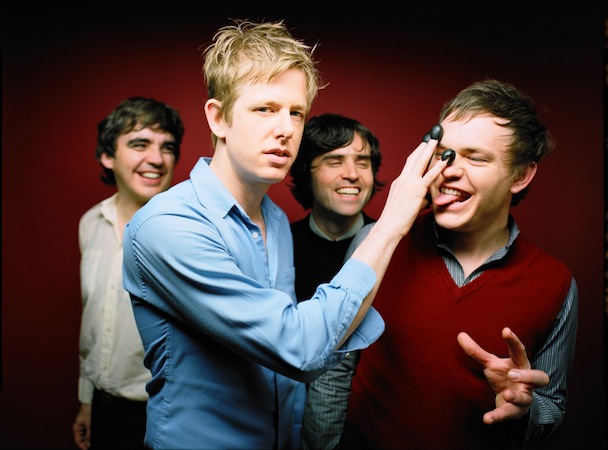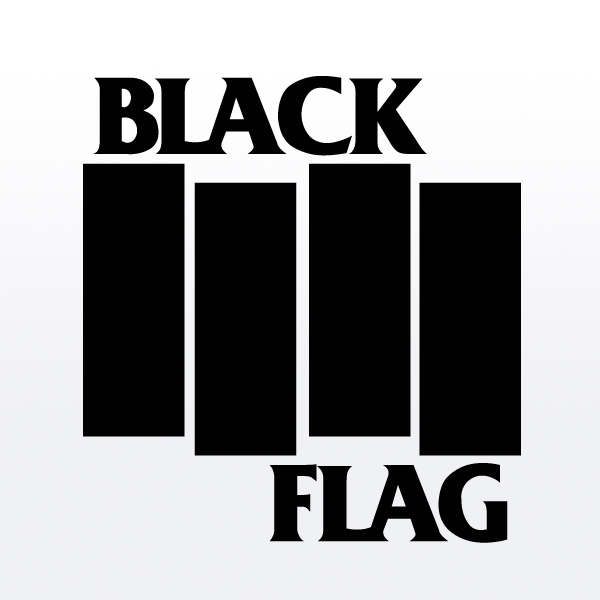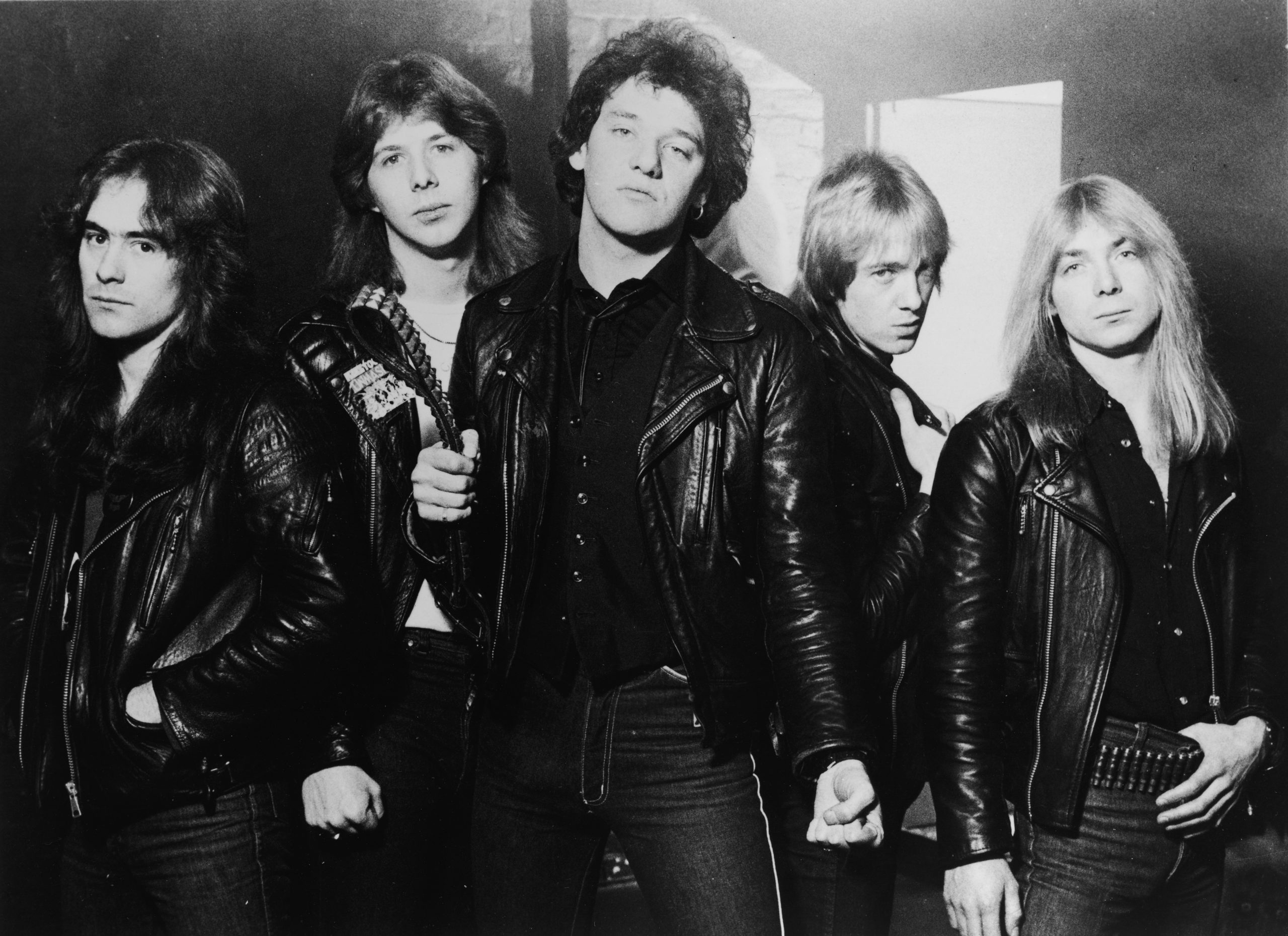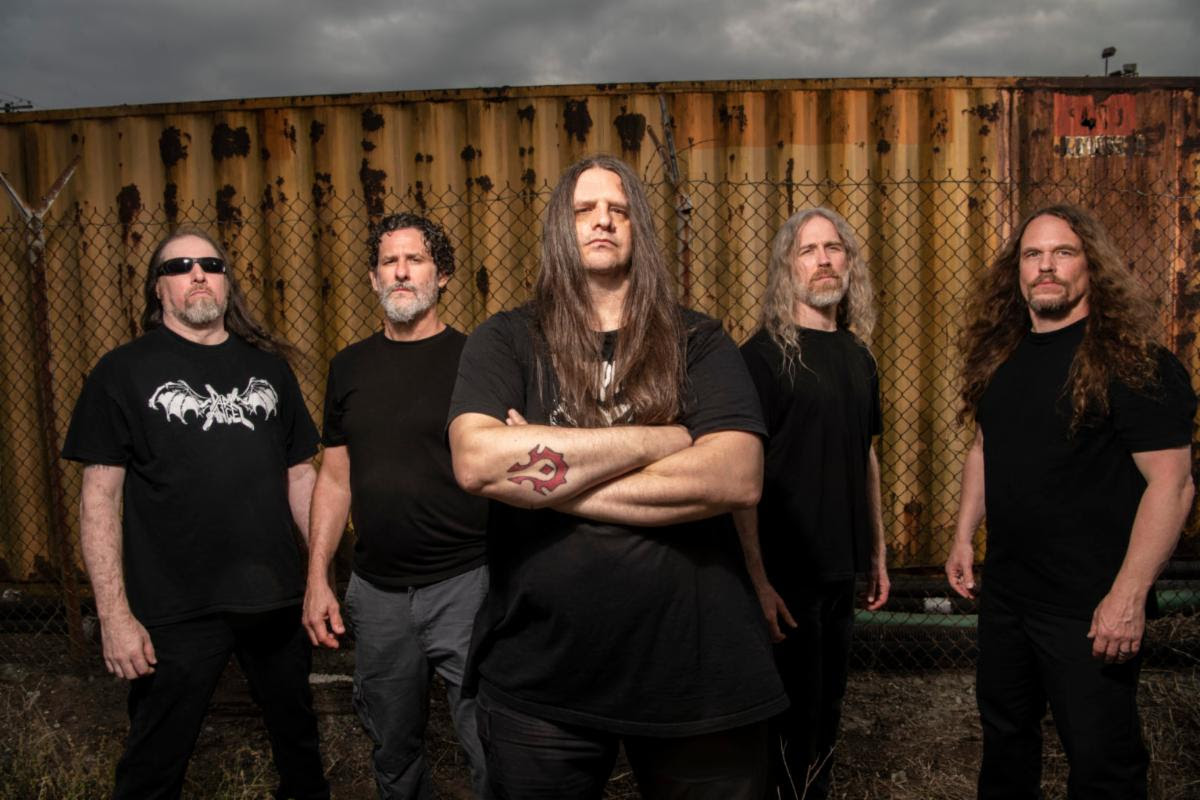Emerging inauspiciously in 1993 with a raw, post-Pixies sound before plotting one of the most distinctively creative courses in indie rock, Spoon has made a career of ignoring rules and trends, amassing a relatively dud-free discography in the process. Watching Spoon beat the odds has been a little like witnessing a child actor -- precocious, sassy, ultimately disposable -- transcend growing pains and emerge as a first class thespian of repute.
The bedrock of Spoon's sound is the result of a long-running collaboration between drummer/engineer Jim Eno and guitarist/vocalist Britt Daniel, one of the more overlooked creative dyads in rock and roll. This partnership, which has more in common with that of Eno/Byrne than Jagger/Richards (but not much more), is a testimonial to a quintessentially democratic, holistic approach to rock and roll record-making. The albums that Eno and Daniel have produced together are clinics in subtlety and nuance, rendered even more fascinating by their ability to get hipsters unselfconsciously dancing and pogo-ing as if no one was watching. Spoon is perhaps the first indie rock band for whom headphone-listening is not only suggested, but mandatory. Their sound lies at the junction where classic rock and roll songwriting intersects with bold production choices and a uniquely experimental approach to mixing and arrangement, where even the deceptively straightest pop song is approached as a sort of gambit. Filtering their popist and rockist tendencies through dance music, soul, and especially dub, Spoon learned early on how to use the studio as an instrument, one that could be bent, manipulated, and exploited in innumerable combinations to creative ends, with no consideration given to attempting to 'recreate' these experiments onstage. Very few bands have stubbornly indulged their own weirdness and emerged with a track record as strong or a fan-base as fiercely loyal (see comments section below, inevitably).
Though the band's early efforts are spiky and tense, Spoon would quickly subtract some of the clutter, replacing it with an almost clinical ambience while still retaining classic rock's nervy signifiers and indie rock's tuff gnarl. Interestingly, the rock and roll interjections of "Oh yeah!" and "Come on!" seemed to only increase as the band moved further from anything resembling guitar rock.
If the following list counting down Spoon albums from worst to best hews close to the band's own chronological output, it's only because Spoon is the rare band that actually improves with age.

7. Telephono (1996)
Telephono is an uncompromising swivet of a record -- it boasts the most occasions of the use of the f-word on a Spoon record. To say that the band had yet to come to terms with their love of pop music, however, would be incorrect. Though frustratingly monochromatic and Wire-y, Telephono isn't all bluster and bumptiousness. The first three songs set the stage for a minor masterpiece: "Don't Buy The Realistic," "Not Turning Off," and "All The Negatives Have Been Destroyed" make for a rather appetizing opening triptych. Britt Daniel's rockist, mush-mouthed exclamations are rendered in what sounds like telegraphese, while his vocal register is louder, deeper, but less open throated than on later records. Fan favorite "Nefarious" builds charmingly on the Lollapalooza-catnip template (quiet-loud-quiet, repeat), while the vaguely ominous and math-y sounding "Towner" wouldn't sound out of place on an early Touch & Go comp. Compared to the environmentally economical Spoon of later albums, Telephono is practically bombastic, its every nook filled with distorted guitars, keyboards, samples and noise. The album has its ardent defenders, but listening with 15+ years hindsight, Telephono mostly sounds like really good grunge.7. Telephono (1996)
Telephono is an uncompromising swivet of a record -- it boasts the most occasions of the use of the f-word on a Spoon record. To say that the band had yet to come to terms with their love of pop music, however, would be incorrect. Though frustratingly monochromatic and Wire-y, Telephono isn't all bluster and bumptiousness. The first three songs set the stage for a minor masterpiece: "Don't Buy The Realistic," "Not Turning Off," and "All The Negatives Have Been Destroyed" make for a rather appetizing opening triptych. Britt Daniel's rockist, mush-mouthed exclamations are rendered in what sounds like telegraphese, while his vocal register is louder, deeper, but less open throated than on later records. Fan favorite "Nefarious" builds charmingly on the Lollapalooza-catnip template (quiet-loud-quiet, repeat), while the vaguely ominous and math-y sounding "Towner" wouldn't sound out of place on an early Touch & Go comp. Compared to the environmentally economical Spoon of later albums, Telephono is practically bombastic, its every nook filled with distorted guitars, keyboards, samples and noise. The album has its ardent defenders, but listening with 15+ years hindsight, Telephono mostly sounds like really good grunge.
6. Transference (2010)
If previous Spoon records were exercises in minimalism, Transference sounds virtually cannibalized. An about-face from the comparatively magisterial Ga Ga Ga Ga Ga, the songs on Transference sound like cleaned-up outtakes and demos from that record, despite appearing three years later. Britt Daniel described the record upon release as 'uglier' than its predecessors, and sonically speaking, he's on the money. Though the spontaneous feel of the record is always engaging (this is a record you will keep returning to, whether you like it or not), it is, in many ways, a 'grower' record that doesn't grow. Throughout the album, extended instrumental sections seem to jam on endlessly, while fragments gradually expand, retract and morph microscopically like the headiest home-listening techno. Minimal techno, however, is hardly the only non-rock influence on Transference: the playfully abrupt vocal cuts on "Is Love Forever?" and "The Mystery Zone" are pure dub, while "Who Makes Your Money" bears a striking similarity to, of all things, A Tribe Called Quest's "Award Tour" If the entire record was made up of moments like these, Transference would rate higher in the Spoon discography, but several lesser tunes on the album are pretty tough going. "Trouble Comes Running" sounds like something the notoriously edit-shy Robert Pollard might have left on the cutting room floor; "Goodnight Laura," a piano ballad complete with strings, sounds very much at odds with Spoon's studied detachment; and both opening and closing tracks seem arbitrary, unfocused and unfinished. First single "Got Nuffin" is the sort of straight rocker that, by this point in their career, Spoon could compose during soundcheck. Though Transference is not without its moments, the oversaturated William Eggleston photo of a child looking restless and bored seems well chosen as cover art for a record that feels so purgatorial and transitive.6. Transference (2010)
If previous Spoon records were exercises in minimalism, Transference sounds virtually cannibalized. An about-face from the comparatively magisterial Ga Ga Ga Ga Ga, the songs on Transference sound like cleaned-up outtakes and demos from that record, despite appearing three years later. Britt Daniel described the record upon release as 'uglier' than its predecessors, and sonically speaking, he's on the money. Though the spontaneous feel of the record is always engaging (this is a record you will keep returning to, whether you like it or not), it is, in many ways, a 'grower' record that doesn't grow. Throughout the album, extended instrumental sections seem to jam on endlessly, while fragments gradually expand, retract and morph microscopically like the headiest home-listening techno. Minimal techno, however, is hardly the only non-rock influence on Transference: the playfully abrupt vocal cuts on "Is Love Forever?" and "The Mystery Zone" are pure dub, while "Who Makes Your Money" bears a striking similarity to, of all things, A Tribe Called Quest's "Award Tour" If the entire record was made up of moments like these, Transference would rate higher in the Spoon discography, but several lesser tunes on the album are pretty tough going. "Trouble Comes Running" sounds like something the notoriously edit-shy Robert Pollard might have left on the cutting room floor; "Goodnight Laura," a piano ballad complete with strings, sounds very much at odds with Spoon's studied detachment; and both opening and closing tracks seem arbitrary, unfocused and unfinished. First single "Got Nuffin" is the sort of straight rocker that, by this point in their career, Spoon could compose during soundcheck. Though Transference is not without its moments, the oversaturated William Eggleston photo of a child looking restless and bored seems well chosen as cover art for a record that feels so purgatorial and transitive.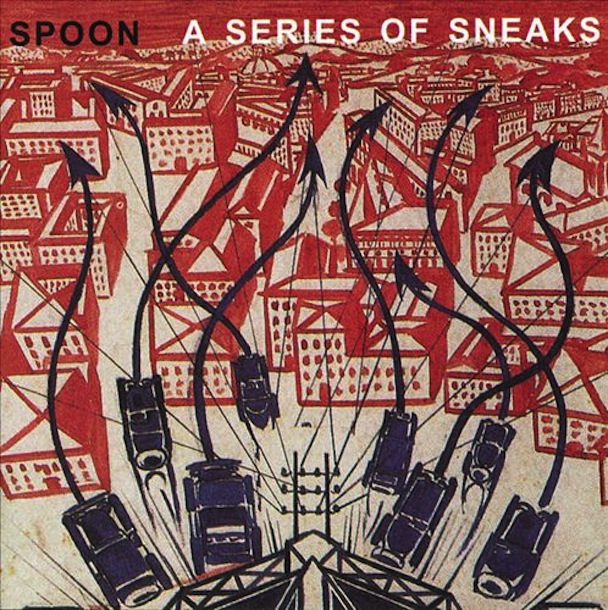
5. A Series Of Sneaks (1998)
Following the superb and crucial Soft Effects EP (mercifully tacked onto the 2-disc reissue of Telephono), Spoon signed to Elektra for a brief, notoriously grim major label tryst. Elektra A&R Ron Laffitte quit four months into the press campaign for A Series Of Sneaks, leaving the band with no advocate at a label that hadn't the foggiest idea what to do with them. Spoon would eventually respond by immortalizing their major label pied piper with a pair of humorous, biting songs with titular puns on Laffitte's name (both songs are included on later pressings of A Series Of Sneaks). While it's possible, in hindsight, to imagine a major label banking on songs like "Guestlist / the Execution" (how far was this from the Toadies or The Presidents of the United States of America, really?), it's difficult to imagine the brass at Elektra believing that this cryptic, oblique, weird fucking record was going to be the next Nevermind. Though A Series of Sneaks, like Telephono, may lack the atmosphere of the Spoon we've come to know and love, and its structural density can be a tad overbearing, it nevertheless contains some great songs: album closer "Advance Cassette" evokes both the soused irascibility and wide-angle balladry of Archers of Loaf; "30 Gallon Tank," is a delightful ruckus of jarring guitar pandemonium and motorik drums; and the cheap organ sounds and home-recorded ambience of the great "Metal Detektor" point the direction of a more autonomous, more confidently strange Spoon to come.5. A Series Of Sneaks (1998)
Following the superb and crucial Soft Effects EP (mercifully tacked onto the 2-disc reissue of Telephono), Spoon signed to Elektra for a brief, notoriously grim major label tryst. Elektra A&R Ron Laffitte quit four months into the press campaign for A Series Of Sneaks, leaving the band with no advocate at a label that hadn't the foggiest idea what to do with them. Spoon would eventually respond by immortalizing their major label pied piper with a pair of humorous, biting songs with titular puns on Laffitte's name (both songs are included on later pressings of A Series Of Sneaks). While it's possible, in hindsight, to imagine a major label banking on songs like "Guestlist / the Execution" (how far was this from the Toadies or The Presidents of the United States of America, really?), it's difficult to imagine the brass at Elektra believing that this cryptic, oblique, weird fucking record was going to be the next Nevermind. Though A Series of Sneaks, like Telephono, may lack the atmosphere of the Spoon we've come to know and love, and its structural density can be a tad overbearing, it nevertheless contains some great songs: album closer "Advance Cassette" evokes both the soused irascibility and wide-angle balladry of Archers of Loaf; "30 Gallon Tank," is a delightful ruckus of jarring guitar pandemonium and motorik drums; and the cheap organ sounds and home-recorded ambience of the great "Metal Detektor" point the direction of a more autonomous, more confidently strange Spoon to come.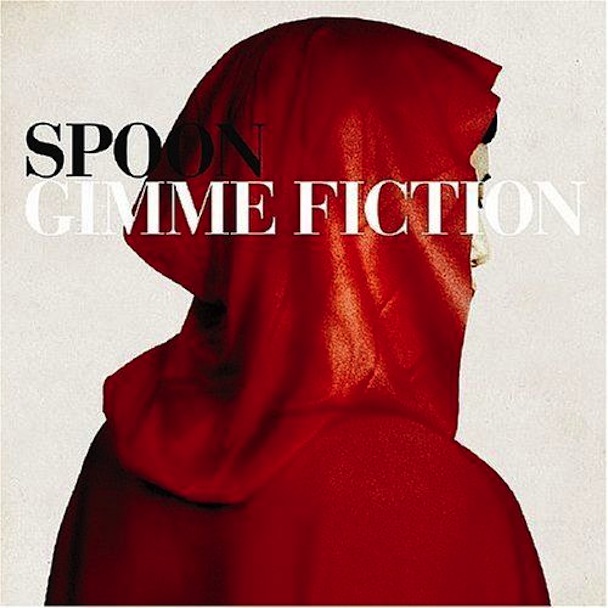
4. Gimme Fiction (2005)
Groovy, sexy, and spaced-out, Gimme Fiction is Spoon's Emotional Rescue. Evoking the most artful aspects of 80s production, it's also the longest Spoon record at a whopping 44 minutes (and the first of only two Spoon albums to exceed forty minutes). Most great Spoon records are simultaneously 'growers' in the great tradition and instantly memorable -- the song that has you tapping your foot the first time around will likely have you marveling at its hidden-in-plain-sight weirdness during subsequent listens -- and Gimme Fiction displays this duality better than any other record in Spoon's oeuvre. The unhinged guitar solo on the spooky "The Beast and Dragon, Adored" proves that Spoon can still get noisy and wild, while "The Two Sides of Monsieur Valentine" posits a world where Tom Petty never met Jeff Lynne and kept making great new wave records. "I Turn My Camera On" is the sort of slinky, funky disco punk that DFA might have released around this time, even (especially?) as it nicks the bridge of the Eurythmics megahit "Sweet Dreams (Are Made Of This)." The irresistible and jangly "Sister Jack" provides the album's center and may be the band's greatest pop song, even as it slyly adds an extra bar to the coda just to derail the head-nodding. A dragging third act disqualifies the album from any Spoon top three, but it's telling that Gimme Fiction would likely provide the largest number of 'hits' to any theoretical Spoon greatest hits collection.4. Gimme Fiction (2005)
Groovy, sexy, and spaced-out, Gimme Fiction is Spoon's Emotional Rescue. Evoking the most artful aspects of 80s production, it's also the longest Spoon record at a whopping 44 minutes (and the first of only two Spoon albums to exceed forty minutes). Most great Spoon records are simultaneously 'growers' in the great tradition and instantly memorable -- the song that has you tapping your foot the first time around will likely have you marveling at its hidden-in-plain-sight weirdness during subsequent listens -- and Gimme Fiction displays this duality better than any other record in Spoon's oeuvre. The unhinged guitar solo on the spooky "The Beast and Dragon, Adored" proves that Spoon can still get noisy and wild, while "The Two Sides of Monsieur Valentine" posits a world where Tom Petty never met Jeff Lynne and kept making great new wave records. "I Turn My Camera On" is the sort of slinky, funky disco punk that DFA might have released around this time, even (especially?) as it nicks the bridge of the Eurythmics megahit "Sweet Dreams (Are Made Of This)." The irresistible and jangly "Sister Jack" provides the album's center and may be the band's greatest pop song, even as it slyly adds an extra bar to the coda just to derail the head-nodding. A dragging third act disqualifies the album from any Spoon top three, but it's telling that Gimme Fiction would likely provide the largest number of 'hits' to any theoretical Spoon greatest hits collection.
3. Girls Can Tell (2001)
The modern Spoon sound begins with Girls Can Tell, the album on which the piano, a prominent fixture of Spoon releases henceforth, enters the picture. Fraught with the same hopped-up tension as the previous two LPs but unapologetically embracing classic rock affectations previously only hinted at, Girls Can Tell marks the efflorescence of a classic band. Reviews of previous Spoon albums always seemed to overstate the Wire influence, as if Wire had only made Pink Flag, but Girls Can Tell is more reminiscent of the vastly superior Chairs Missing, an equally intrepid, sonically rich album overflowing with ideas. On Girls Can Tell, Spoon nods to Thin Lizzy ("Anything You Want") and reggae ("Lines In The Suit"), while "Me and The Bean," a cover of a song by obscure Austin band The Sidehackers (whose John Clayton plays bass on the album), sounds like Nirvana covering The Attractions. Though this is the first Spoon album to feature lyrical themes dealing with actual human emotions beyond detached bemusement and aimless rage, mundane concerns are still the order of the day: "The Fitted Shirt," for example, doesn't really expound beyond its title. Which is just as well, because Spoon is really only in love with the margins and possibilities of sound -- it's not for nothing the band is named after a Can song. Structurally taut but sonically elastic, Girls Can Tell is the first great Spoon LP.3. Girls Can Tell (2001)
The modern Spoon sound begins with Girls Can Tell, the album on which the piano, a prominent fixture of Spoon releases henceforth, enters the picture. Fraught with the same hopped-up tension as the previous two LPs but unapologetically embracing classic rock affectations previously only hinted at, Girls Can Tell marks the efflorescence of a classic band. Reviews of previous Spoon albums always seemed to overstate the Wire influence, as if Wire had only made Pink Flag, but Girls Can Tell is more reminiscent of the vastly superior Chairs Missing, an equally intrepid, sonically rich album overflowing with ideas. On Girls Can Tell, Spoon nods to Thin Lizzy ("Anything You Want") and reggae ("Lines In The Suit"), while "Me and The Bean," a cover of a song by obscure Austin band The Sidehackers (whose John Clayton plays bass on the album), sounds like Nirvana covering The Attractions. Though this is the first Spoon album to feature lyrical themes dealing with actual human emotions beyond detached bemusement and aimless rage, mundane concerns are still the order of the day: "The Fitted Shirt," for example, doesn't really expound beyond its title. Which is just as well, because Spoon is really only in love with the margins and possibilities of sound -- it's not for nothing the band is named after a Can song. Structurally taut but sonically elastic, Girls Can Tell is the first great Spoon LP.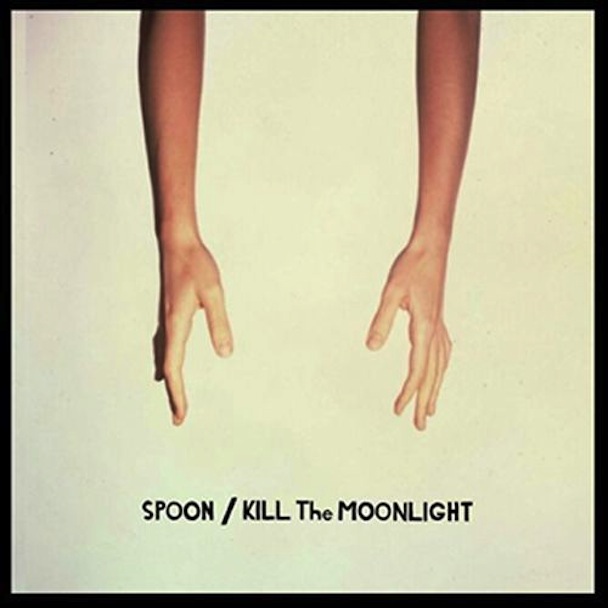
2. Kill The Moonlight (2002)
Kill The Moonlight is Girls Can Tell's moodier, more sophisticated cousin. The resplendent, reductive "Small Stakes" is Clinic's entire career summed up in less than three minutes. The deservedly well-loved "The Way We Get By" is the poppiest song to ever use the word 'taciturn' -- bouncy, rollicking, propulsive, it's a little Mungo Jerry, a little Squeeze, and a dash of Plastic Bertrand. A kind of beatboxing provides the rhythm for "Stay Don't Go," which suggests an alternate universe in which Tom Waits is a hip-hop icon. "Jonathon Fisk" is a great punk song with a great punk-worthy lyric: "Religion don't mean a thing / it's just another way to be right wing." From the Kinks-y "Don't Let It Get You Down," to the saxophone-abetted "You Gotta Feel It" to the deceptively epic closer "Vittorio E," Spoon has rarely sounded as ambitious or playful, treating the mix as if stereo sound has just been invented and the band is eager to experiment with this new technology. Pointillistic, punchy, and weird, Kill The Moonlight is Spoon's 'date night' record, if your idea of a date involves breaking into mobile homes, listening to Har Mar Superstar, and getting spooked by cryptic messages on dollar bills.2. Kill The Moonlight (2002)
Kill The Moonlight is Girls Can Tell's moodier, more sophisticated cousin. The resplendent, reductive "Small Stakes" is Clinic's entire career summed up in less than three minutes. The deservedly well-loved "The Way We Get By" is the poppiest song to ever use the word 'taciturn' -- bouncy, rollicking, propulsive, it's a little Mungo Jerry, a little Squeeze, and a dash of Plastic Bertrand. A kind of beatboxing provides the rhythm for "Stay Don't Go," which suggests an alternate universe in which Tom Waits is a hip-hop icon. "Jonathon Fisk" is a great punk song with a great punk-worthy lyric: "Religion don't mean a thing / it's just another way to be right wing." From the Kinks-y "Don't Let It Get You Down," to the saxophone-abetted "You Gotta Feel It" to the deceptively epic closer "Vittorio E," Spoon has rarely sounded as ambitious or playful, treating the mix as if stereo sound has just been invented and the band is eager to experiment with this new technology. Pointillistic, punchy, and weird, Kill The Moonlight is Spoon's 'date night' record, if your idea of a date involves breaking into mobile homes, listening to Har Mar Superstar, and getting spooked by cryptic messages on dollar bills.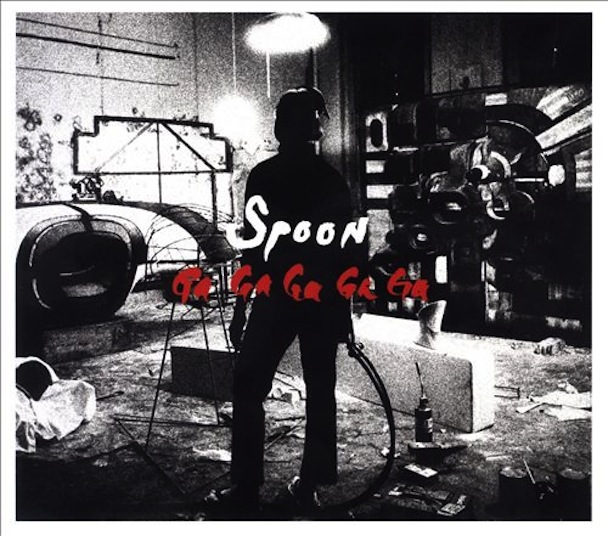
1. Ga Ga Ga Ga Ga (2007)
Lean but not minimal, catchy but never inane, the brilliant Ga Ga Ga Ga Ga deservedly sold well over 300,000 copies in the US. 10 tracks and 36 minutes, Ga Ga Ga Ga Ga represents the peak of Spoon's perverted formalism, and is as much an auditory tour of the making of an album as an album itself. "The Ghost Of You Lingers" begins where "Small Stakes" left off, with frantic piano stabs and several vocal parts chasing each other in a game of freeze tag across the stereo spectrum. Much has been made of the Billy Joel-sounding "The Underdog," but the handclaps and horns are merely tools implemented in service of a great song, and not the least bit garish or gratuitous in context. Other, hipper classic rock references abound: "You Got Yr Cherry Bomb" nicks the vocal melody from Blondie's "Dreaming" to great effect; the Beatles-esque "Don't Make Me A Target" unfurls with descending minor chords and chugging guitars, which occasionally short out in the right channel while wide-open piano chords cascade like a slow-motion fireworks display in the left. Beyond the songs, the most endearing quality of Ga Ga Ga Ga Ga is its intimacy. Throughout the album, ambient studio sounds vie for attention: the dribbling of talkback mic chatter, the fog of distant click-tracks, the settling of drumsticks on the snare at a song's conclusion, murmured comments about the studio temperature. This is not done in a conspicuously indie verite way, but mischievously and demonstratively, like sonic renderings of the exploded drawings of appliances in old Sears Roebuck catalogs. The whole album seems to whisper "Here's how we did it" -- call it meta-core. The deeper and more attentively you listen, the more the record reveals. Notice how, for example, on "Eddie's Ragga," the staccato guitar chords seem to randomly change from being basked in plate reverb to being totally dry, for one single guitar slash, before returning to the bath of echo. It's just one of many instances on a record that rewards the sort of respect usually reserved for sidelong prog rock suites and classic era bebop. Ga Ga Ga Ga Ga is functional rock and roll that stimulates discussion, debate, and hallucinations. It's marvelous music.1. Ga Ga Ga Ga Ga (2007)
Lean but not minimal, catchy but never inane, the brilliant Ga Ga Ga Ga Ga deservedly sold well over 300,000 copies in the US. 10 tracks and 36 minutes, Ga Ga Ga Ga Ga represents the peak of Spoon's perverted formalism, and is as much an auditory tour of the making of an album as an album itself. "The Ghost Of You Lingers" begins where "Small Stakes" left off, with frantic piano stabs and several vocal parts chasing each other in a game of freeze tag across the stereo spectrum. Much has been made of the Billy Joel-sounding "The Underdog," but the handclaps and horns are merely tools implemented in service of a great song, and not the least bit garish or gratuitous in context. Other, hipper classic rock references abound: "You Got Yr Cherry Bomb" nicks the vocal melody from Blondie's "Dreaming" to great effect; the Beatles-esque "Don't Make Me A Target" unfurls with descending minor chords and chugging guitars, which occasionally short out in the right channel while wide-open piano chords cascade like a slow-motion fireworks display in the left. Beyond the songs, the most endearing quality of Ga Ga Ga Ga Ga is its intimacy. Throughout the album, ambient studio sounds vie for attention: the dribbling of talkback mic chatter, the fog of distant click-tracks, the settling of drumsticks on the snare at a song's conclusion, murmured comments about the studio temperature. This is not done in a conspicuously indie verite way, but mischievously and demonstratively, like sonic renderings of the exploded drawings of appliances in old Sears Roebuck catalogs. The whole album seems to whisper "Here's how we did it" -- call it meta-core. The deeper and more attentively you listen, the more the record reveals. Notice how, for example, on "Eddie's Ragga," the staccato guitar chords seem to randomly change from being basked in plate reverb to being totally dry, for one single guitar slash, before returning to the bath of echo. It's just one of many instances on a record that rewards the sort of respect usually reserved for sidelong prog rock suites and classic era bebop. Ga Ga Ga Ga Ga is functional rock and roll that stimulates discussion, debate, and hallucinations. It's marvelous music.